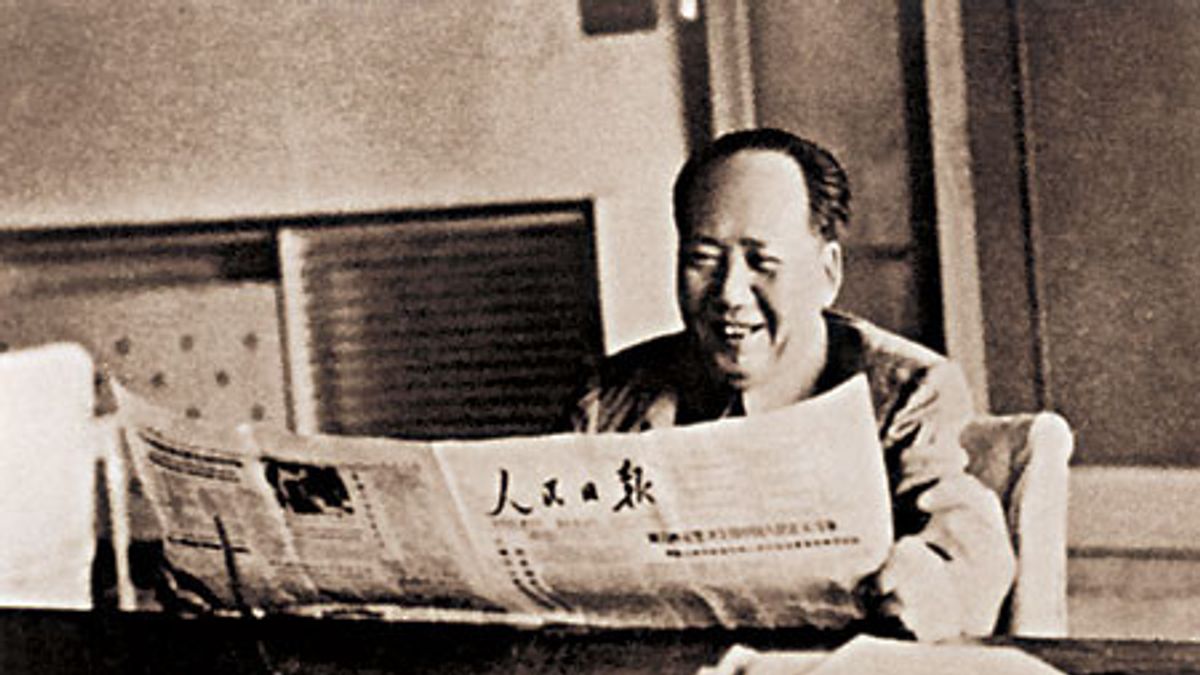JAKARTA - The fall of the Manchu Dynasty or Qing in China has never been predicted before. The kingdom that led China hundreds of years was considered too strong. However, everything changed when Chinese communist groups appeared.
The presence of Mao Zedong and the Chinese Communist Party (PKC) is behind him. The party close to the Soviet Union received the blessing of the entire People of China. Mainly the farmers. They became the rulers of China. Especially after the collapse of the dominance of Kuomitang (China Nationalist Party).
The rule of the Qing Dynasty is so thick in China. In fact, the monarchy leadership has lasted a very long time. The Chinese people also bowed to the leadership of the Emperor. The power is very strong. No one was able to predict the collapse of the Qing Dynasty.
Everything changed when the Chinese people began to cultivate disappointment with the authorities. Mainly, the handover of the Hong Kong region to England. Not to mention that justice and prosperity are something that is expensive and rare in the Qing Dynasty. The opponents were also inflamed by the nationalist group. Communism became their main tool in achieving independence. Sun Yat Sen and his political tools Kuomitang became the vanguard of the fighting movement.
In addition, the dominance of Koumintang was also balanced with the birth of the Chinese Communist Party in 1921. Parties with many births in rural areas also wrote their stories in the history of the revolution in China. The study was successful. The shattered Qing dynasty.
Kuomittang was temporarily in power. From Sun Yat-sen to fenis Kai-shek. The dominance ended because of the outbreak of a civil war that brought together between Kaoumintang and PKC. The PKC with the solid leadership of Mao Zedong won the war.
The Chinese Communist Party then emerged as the new ruler of China. The People's Republic of China was proclaimed on October 1, 1949. Meanwhile, the Soviet Union, which initially supported Kuomitang, became the first country to admit it.
In the early 20th century, the Bolsheviks, who founded the Soviet Union, helped the Chinese people to be free from colonialism. In the form of the Soviet Communist Party (PKUS), they helped not only the Chinese nationalist group, but also played a major role in the formation of the Chinese Communist Party (PKC). In later developments, these two main Chinese powers came together, with backups from PKUS, in a common force to strengthen Japanese colonialism which in the 1930s controlled East Asia.
Even though these nationalist-communist joint powers had broken out, they were again able to unite against Japan. When the Soviet Union emerged as one of the winners in World War II, civil war broke out again on mainland China. The end of the war was the victory of the communists with the establishment of the People's Republic of China on October 1, 1949, while nationalists fled to Formosa Island, which later became known as the Republic of China or Taiwan," said Nur Rachmat Yuliantoro in the book Leading World Main Power: At a glance Chinese Foreign Politics (2021).
The great strength of the Chinese Communist Party is the full support of the commoners. Mainly the farmers. Mao understands this very well. He also developed a large large base of the PKC masses from village to village. He also struggled a lot to 'arm' the farmers with knowledge. The impact is quite large. The economy of the farmers is increasing.
The farmers were deliberately chosen by Mao. The reason is that there are not as many workers in China as in the Soviet Union. While farmers are often present in every village. Therefore, Mao has confidence that if the farmers unite, the explosive power will be the same as the October Revolution that was launched by the leader of the Soviet Union, Vladimir Lenin.
At the same time, Mao strengthens the narrative of hatred for those who cooperate with imperialism. These include the hosts, bureaucrats, supporters and intellectuals. Mao echoed the fight against them.
Mao's assessment was successful. The Chinese Communist Party excels in civil war against Kuomittang. In that war, the farmers became the most loyal force to defend the PKC.
It is interesting enough to pay attention to Mao's'mass line' differences with Lenin and Stalin's conceptions. Lenin and Stalin also use the word'mass'. However, they always return it to the proletariat that is the class that leads the farmer class and the small arbitration class. The masses of them are the proletariat and classes led by him. Mao Zedong also maintains that socialism is fought for by the proletariat.
As a communist, Mao never abandoned the typical way of speaking for Marxism-Leninism. However, Mao has actually been focusing on'mass' from the beginning in the sense of the masses of the small people, especially in the countryside. Wibowo shows that for Mao the masses consist of farmers, laborers, minor abortions, and soldiers. Those who do not include the landowners and the bojuis hesars," said Franz Magnis-Suseno in Mao's book to Marcuse: The Filmafat Statue of Marxis Pasca-Lenin (2016).
The English, Chinese, Japanese, Arabic, and French versions are automatically generated by the AI. So there may still be inaccuracies in translating, please always see Indonesian as our main language. (system supported by DigitalSiber.id)











